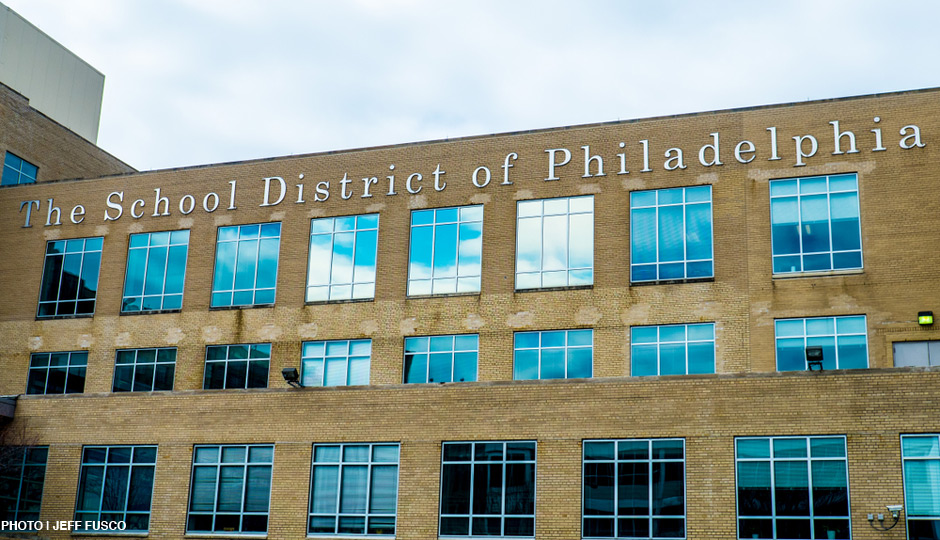INSIDE TAKE: Six Predictions for City Schools in 2015
 (Editor’s note: This is an opinion column from a Citified insider.)
(Editor’s note: This is an opinion column from a Citified insider.)
Reading the big headlines, 2014 seemed like another rough year for Philadelphia’s schools, but we shouldn’t forget that some positive things happened too. With a new governor and a mayoral race, 2015 will bring a lot of debate and new ideas. Here are a few predictions for Philly school watchers:
1. Local control won’t happen. The SRC will survive into 2016, but it will look a little different as one or two members seem likely to step down as Governor Wolf takes office. This is not a bad thing. Until the District is on more solid financial footing or we have some assurances of a funding formula in Harrisburg, wouldn’t local control just give legislators even less reason to support Philly schools? Also, it’s hard to imagine a local governance model that would result in a better outcome.
2. More students will start the next school year in a great school. First, more high-quality charter schools should open. Next month, the SRC will vote on 40 applications from local educators, nonprofits and proven charter operators; if the SRC listens to the thousands of parents who desperately want a better option for their kids, it will approve new charters submitted by applicants already running good schools in the city. Within the District, several innovative high schools will continue to grow and serve more students, and transformation efforts are underway at a few traditional neighborhood schools.
3. The anti-testing refrain grows louder but tests are here to stay. In case you missed it, read this Citified piece from teacher Andrew Saltz on how he and fellow educators feel about testing. This is fairly indicative of a national “opt-out” narrative that will be amplified with the talks of reauthorization of the federal Elementary & Secondary Education Act (currently known as “No Child Left Behind”) and the possibility that it will limit the role of federally mandated standardized tests. But the use of data in education policy will not go away, and neither will annual testing if the Obama administration has anything to say about it. In a speech to reaffirm the administration’s education policies last week, Secretary of Education Arne Duncan explained, “What about schools where, year after year, huge numbers of students drop out or never learn to read? Do families have the right to expect that leaders will put in place meaningful supports and a real plan for improvement? Or is that optional? … This country can’t afford to replace ‘the fierce urgency of now’ with the soft bigotry of ‘It’s optional.'”
4. New Philadelphia will emerge as a voice in local education policy. We all know that Philadelphia has a growing population of college-educated, working professionals settling in neighborhoods outside of Center City. Now these new urbanites are having kids and those kids are reaching school age. In 2014, “Friends” groups – neighborhood school support groups – were popping up in gentrifying neighborhoods faster than beer gardens and bike racks, from East Falls to East Passyunk. This year, these groups will join forces to create a citywide push to support traditional neighborhood public schools. They will be convening in a summit sometime early this year and we can expect to hear more from leaders like Ivy Olesh.
5. Education will be THE issue in local elections. Ok, maybe I’m a bit biased, but it’s hard to imagine a mayoral election that doesn’t center on education given the perfect storm that’s brewing. The District is at a real financial crossroads and schools continue to be one of the largest factors holding the city back in so many ways. Senator Anthony Williams, a longtime proponent of school choice and charter schools, is a top-contender. Ken Trujillo, another prominent candidate, called for the abolition of the SRC in his candidacy announcements, and Lynne Abraham made some, um, interesting comments on education in this interview with Citified. In the City Council race, several at-large candidates are running as “the education candidate” and some have a track-record to back it up, including Isaiah Thomas – a dean at a North Philadelphia charter school – and Tom Wyatt and George Matysik, both leaders of above-mentioned Friends groups in their respective neighborhoods.
6. This summer, we will be talking about a multi-million dollar budget hole… yet again. Fingers crossed that the hole won’t again be plugged with short-term stopgaps that do nothing to address the structural deficit. First: Funding formula. With a strong coalition of local and statewide groups pushing for a fair funding formula, we can expect to see progress toward a more equitable distribution of resources and hopefully a bigger pie, too. Second: Pensions. It’s past time to address ballooning retirement costs; nearly 70 percent of the District’s projected increase in revenue over the next five years will go to pensions (according to its new Inadequate Status Quo financial plan). In the meantime, some people will argue that we can’t talk about reforms until the schools have more money, but that’s not fair to the thousands of kids who sit in classrooms every day regardless of what our leaders are able to achieve at the negotiating tables. We ask our students to do their very best every day, so how can we ask anything less of the school system responsible for their learning?
Kristen Forbriger is public affairs director at the Philadelphia School Partnership and executive committee member of PhillyCORE Leaders. Follow her on Twitter @kforbriger.